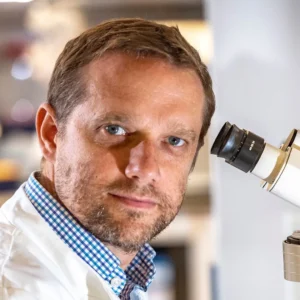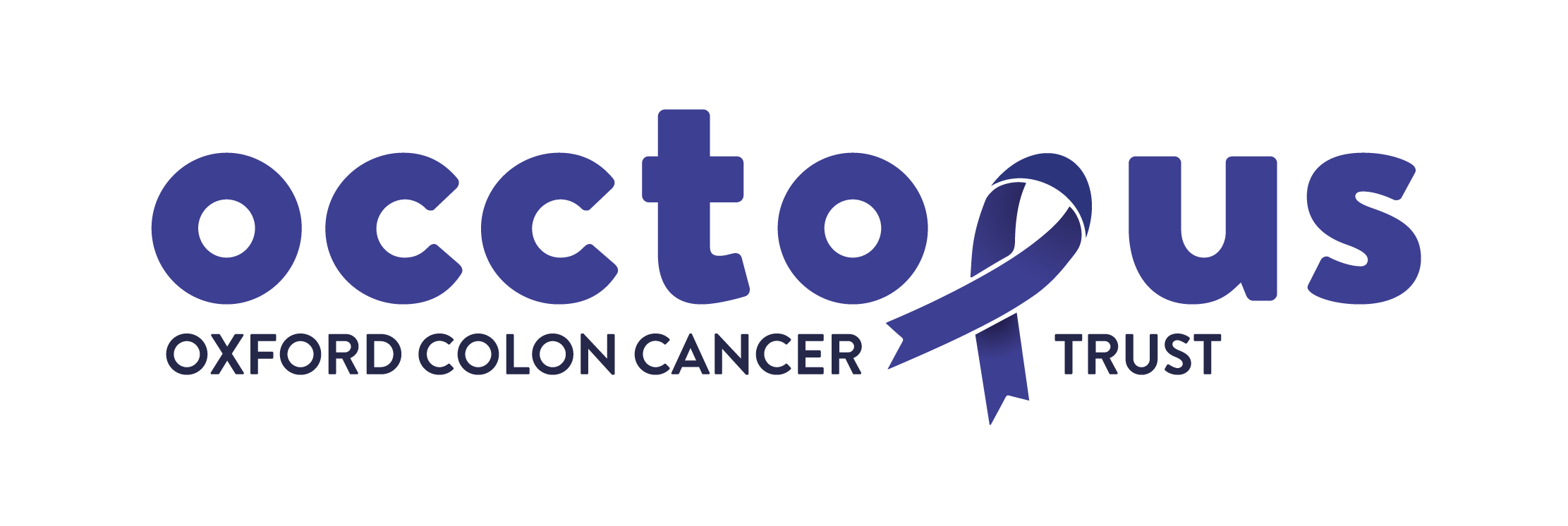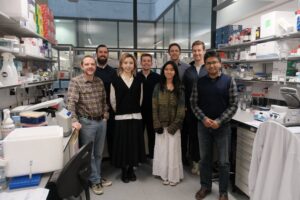Project one
Occtopus has funded two projects, totalling £60,000, spearheaded by the renowned Simon Buczacki, a Professor in Colorectal Surgery who is based at Oxford University Hospitals and the University of Oxford.
Professor Simon Buczacki

The first was a one year project, which was completed in Spring 2023, and was run by University of Oxford Masters student Minn-E Ng. This was a laboratory based research project exploring the effect of tumour cell differentiation on colorectal cancer immunogenicity.
In this study, the team focussed on a type of cell, called Paneth cells – named after the scientist who discovered them in the small intestine – to understand whether these cells could enhance the body’s own immune response against the cancer. Paneth cells play an important role in innate host defence via their ability to secrete antimicrobial peptides and proteins but their function in bowel cancers remains largely unexplored.
Minn-E and Simon initially looked at large numbers of bowel cancer samples and found that those with a high immune response also had many Paneth cells. Next, they uncovered a way to increase the number of Paneth cells in bowel cancer cells growing in the laboratory setting and found by doing this the cancer cells activated T-cells (a key cell type involved in cancer cell death).
The next step is to test this theory on patient samples and we will keep you posted on this.
Project two
The second project is currently underway and is being run by University of Oxford Doctor of Philosophy (DPhil) student Yi Zhou. Occtopus is supporting a three year project looking at bowel cancer organoids.
Organoids are tiny, self-organised three-dimensional tissue cultures that are derived from stem cells. Such cultures can be crafted to replicate much of the complexity of an organ, or to express selected aspects of it, such as producing only certain types of cells.
The Oxford based research team are taking patient samples, or biopsies, from the bowel to grow in a petri dish to develop into organoids. They are then ‘engineering’ these normal organoids to contain cancer mutations. A combination of fibroblasts (a type of cell that contributes to the formation of connective tissue) and organoids are being cultured together to see how different mutations affect cell to cell interactions with the wider neighbouring and supporting cells. This will allow the team to explore the circular communication of cancer cells. Ultimately, the research project will understand whether the blocking of signalling pathways involved in communication between fibroblasts and cancer cells will alter a cancer’s aggression and severity.
Most current cancer drugs target cancer cells, but by targeting the interaction between cells and how they respond to this altered interaction – or blocked cell signals – could provide a huge advancement in cancer treatment.
These new advancements will be published in a highly anticipated academic research paper in Spring 2024 and we will keep you updated on the progress of this research project and the findings.
Pictured L-R: Simon Buczacki, Scott Collins, Yi Zhou, Jack Flower, Stephanie Hasan, Alex Gordon-Weeks, James Bundred and Amit Mandal

